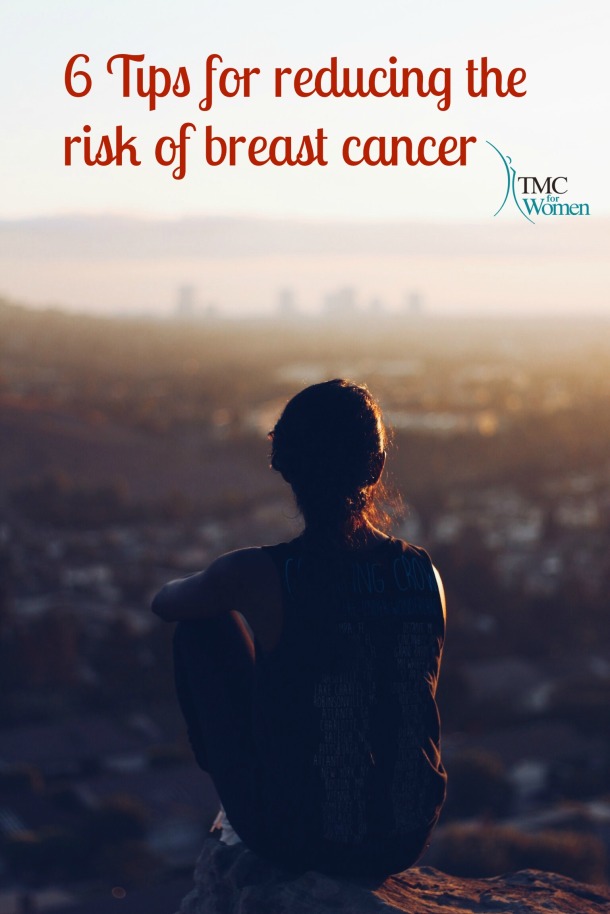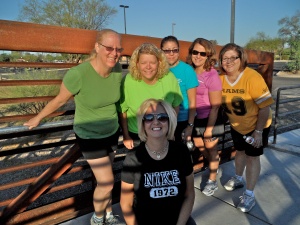 Breast cancer—we all know someone who’s been affected by it, directly or otherwise. To many, it seems like such a scary phantom of a disease, something we can do nothing about but cross our fingers and hope it doesn’t touch our lives.
Breast cancer—we all know someone who’s been affected by it, directly or otherwise. To many, it seems like such a scary phantom of a disease, something we can do nothing about but cross our fingers and hope it doesn’t touch our lives.
But did you know that in fact, there are things you can do to reduce your risk of getting breast cancer? While many cancers have a strong genetic component, there are lifestyle changes we can make to reduce our chances of environmentally-caused breast cancer.
1. Breastfeeding
If you have a baby, try breastfeeding. Nursing is not just good for your baby, but it also offers some protection for the mother against breast cancer.
2. Get regular exercise.
Yeah, we know—this is a component of nearly every preventative health care recommendation. But there’s a reason for it. Exercise lowers stress, and more significantly, it can help you, to …
3. Maintain a healthy weight.
You should try to keep your BMI in the normal range. 18.5-24.9. Don’t know how to calculate your body mass index, or BMI? Well now you do ‑ no excuses! There is a strong correlation between being overweight and breast cancer in postmenopausal women. Obesity is an even more significant factor.
Speaking of menopause, what about hormone therapies? Prolonged use of combined estrogen/progesterone during menopause increases the risk of breast cancer. Talk with your gynecologist about if, when and how you should use hormone therapies. Alternative remedies work well for some women, and other women find great relief from menopausal symptoms by using hormones for only a short period of time, usually right at the start of menopause when symptoms are often most acute (and annoying ‑ hot flashes anyone?)
4. Check your exposure to environmental factors
Research continues on the impact environmental factors have on causing breast cancer, including Cornell University’s Program on Breast Cancer and Environmental Risk Factors.
5. Munching on cruciferous veggies
What about eating all those cruciferous vegetables, like broccoli, and minimizing saturated fat? Well, these eating habits can be considered preventative, because, like exercise, they help you maintain a healthy weight.
6. Evaluate your alcohol intake
Last, and for many, the least fun ‑ limit your alcohol intake. (Yes, sauvignon blanc counts as alcohol, even though it sounds a lot healthier than, say, Jack Daniels). Plain and simple ‑ the more you drink, the more your risk of breast cancer increases. Of course there are many heavy drinkers who don’t get breast cancer, just like there are heavy smokers who don’t develop lung cancer. But if you want to take charge of your breast health but really enjoy a drink with dinner, limit yourself to just one a day.
Taking these steps will help lower your risk of breast cancer and regular screening mammograms can help catch breast cancer when it is very treatable.
40 years old or older?
Make your yearly appointment today at TMC for Women’s Breast Center.
Have a family history of breast cancer?
Talk with us about when to schedule your appointment. A rough guide being 10 years of age prior to the age at which breast cancer was diagnosed in your family member.

Excellent article! Hope many will read it and follow the advice!
Thanks so much for this great article. I don’t have a family history of breast cancer but I think it’s so important to be aware of what we put into and around our bodies and communities. To this end, I’m also supporting chemicals reform and the Safe Chemicals Act because I think it’s up to not only individuals but also the entire chemicals industry to change. They’ve got to stop pumping crap into the market stream.
Nice to see medical information that isn’t drug company related. Thanks for doing the research and putting it in a simple useful format.
Good summary of info on this topic – without the drama often associated with breast cancer discussions. And awesome use of the word “cruciferous”!
Thanks, Margaret, I try to work in the word “cruciferous” as much as possible. It’s just not utilized to its full potential. Same with”penultimate”. Keep an eye out for that one…
Very informative article. So many women are being diagnosed everyday, to know there are things we can do to help prevent it why not at least try them? I’m not one to take a bunch of herbs and things but this is pretty easy stuff.
This is a profound article that all women should read. We must love ourselves enough to
take care of our bodies and teach our daughters. Thank you for the most important information.
good information. thx
!